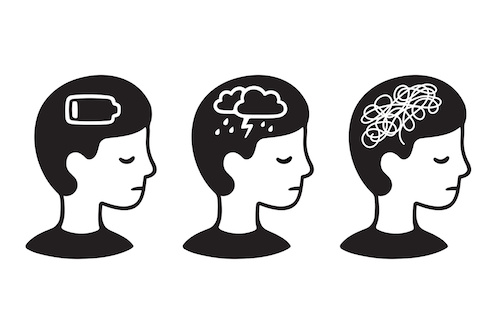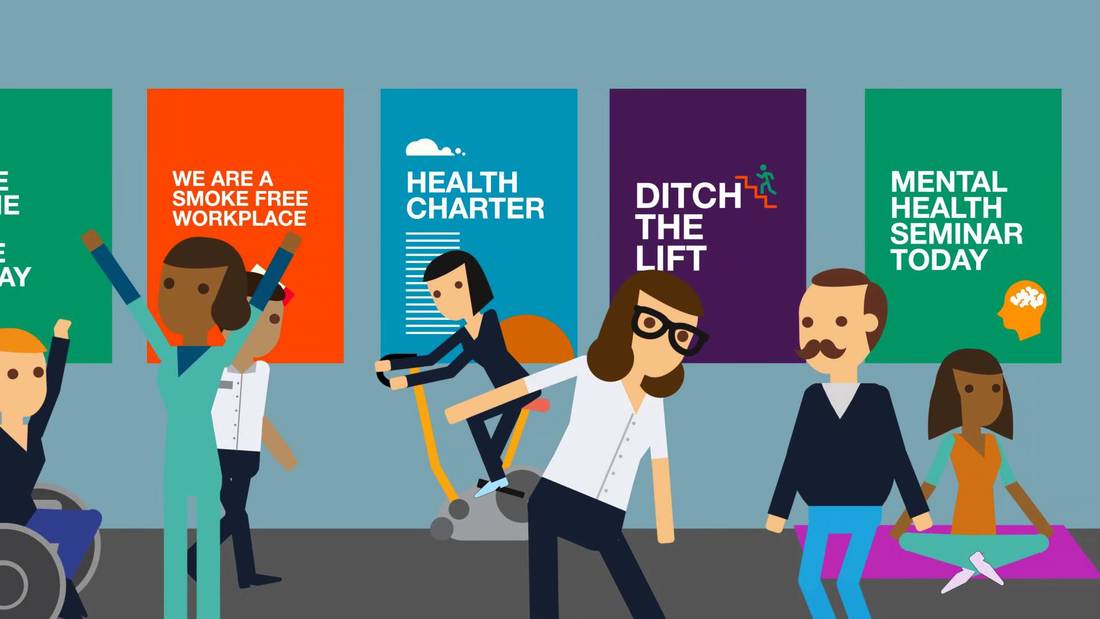When Poor Employee Job Performance is Linked to Depression
By Kate Gettinger, OD March 10, 2021
As an employer, we always want our employees to be productive and efficient. An employee’s job performance can be tied to a lot of factors, including ones that we as employers may not have control over. One key component to an employee’s performance is their health. An employee with poor health is often not able to put in the same effort as when they are well, and thus performance may suffer.

We can all probably easily identify an employee who is showing physical signs of illness that may be impacting their work: sniffling, coughing, pallor, lethargy. But what about employees that have more subtle signs of illness? Employers need to also be aware of their employee’s mental health, especially as it can often have an even larger impact on job performance than physical health. Managers need to be able to recognize the signs of an employee struggling with his or her mental health and then be able to address the situation appropriately, especially now during the Covid pandemic.
Unfortunately, it is often too easy to confuse the signs of depression and anxiety as a poor work ethic or lacking a good attitude. If you approach the situation thinking the employee just needs a pep talk about improving their attitude at work, you won’t see any difference in his or her performance. However, if you identify the fundamental cause, you can take steps to help improve the employee’s mental wellness, which will, in turn, result in better job performance.
With the increasing prevalence of depression in the United States, it is not unusual to have an employee suffering from the disease. Warning signs that an employee may be struggling with depression can including the following:
● Loss of interest in socializing with colleagues
● Decreased productivity levels, decrease in work quality
● Missing deadlines
● Forgetfulness
● Trouble cooperating with other team members
● Increased arguments with coworkers
● Complaints of constant fatigue, seems tired
● Showing up late frequently, increased absences
● Increase in work accidents
● Change in mood, lack of confidence and enthusiasm
● Abuse of alcohol or other drugs
Employees with depression may exhibit many of these signs or only one or two, but more often than not these signs persist over the course of several weeks or more. We all can have a random off day on the job, but for those with depression, every day seems like an off day. If you notice an employee consistently struggling with these warning signs, he or she may be suffering from depression.
What do you do as a manager or employer if you suspect an employee has depression?
If you think an employee has depression, there are several steps you can take to address the situation.
 Efficient and timely intervention is key. As soon as you have determined depression as the likely source of the decreased performance, you need to confront the employee, rather than letting the problem continue to persist and worsen. Don’t wait for the employee to come to you for help. Most often, they won’t.
Efficient and timely intervention is key. As soon as you have determined depression as the likely source of the decreased performance, you need to confront the employee, rather than letting the problem continue to persist and worsen. Don’t wait for the employee to come to you for help. Most often, they won’t.
This intervention does not necessarily need to be from you. In fact, intervention usually works best when executed by someone the employee trusts and respects, and someone with whom the employee feels comfortable. You may need to designate a particular person to confront the employee if you don’t feel that you are the best candidate for the role.
The person performing the intervention needs to express genuine concern and outline the employee’s specific behaviors that have raised flags to hint at depression. Concentrate on observable behaviors, and acknowledge that a change in attitude or performance has taken place.
When confronting the employee, it is critical to not appear to be judgmental. Often, it can be helpful to relate one’s own personal struggles or similar experiences that may be relatable. Remain discrete, and avoid any comments that may make the employee think that everyone has noticed their decreased performance, as this may lead to further embarrassment and anxiety.
Try to put yourself into the employee’s shoes. Being genuinely empathetic is key to supporting the depressed employee. Empathy allows you to demonstrate that you are not passing judgment or criticizing the employee, but rather that you know how they are feeling and have emotionally been there, too. By expressing an alliance in this way, it can help the depressed person realize they are not alone and they have a source of support available to them.
If an employee wants to relate the reasons behind their depression, be prepared to listen. Many times, simply talking through the story can help relieve some of the burden of depression, and having someone who is genuinely listening can be a relief. However, you may need to set limits if you feel like the conversation gets out of your depth. You can remain empathetic, but often it can be more beneficial to the employee to refer them to someone who can provide professional counseling or guidance.
:max_bytes(150000):strip_icc()/mental-health-professional-talks-with-female-patient-965665536-5c2e2fe4c9e77c0001a7a33f.jpg)
One of the key points to remember as a manager and employer is that you do not need to feel personally responsible for discussing medical problems, counseling, or diagnosing employees. If you suspect an employee is depressed but you personally don’t feel equipped to handle the situation, be aware of resources that are available to you. Refer the employee to services either within your business or through other sources that can help them address their illness. Outside professional counseling or community clinics can be a valuable resource and it may be worth your time to identify local programs that are accessible through your employee health plan or that may be more suitable to your employees.
After confronting the employee, it is important to reinforce your concern for the employee’s well-being and your desire to help them get back on track. At the end of the day, it is still a business, however, so it can also be beneficial to reinforce the fact that you will expect the employee’s performance to improve whether or not they decide to take advantage of any resources you provide. Making documentation of this meeting can help keep a record of accountability for both you and the employee.
In conclusion, it’s important for employers to recognize clinical depression is increasing in prevalence, and we need to be ready to address and help employees who begin to show signs of the disease. By being aware of the warning signs and having a plan of action in place when we notice an employee exhibiting symptoms of depression, we can be better equipped to not only improve an employee’s job performance but also help improve their mental well-being.